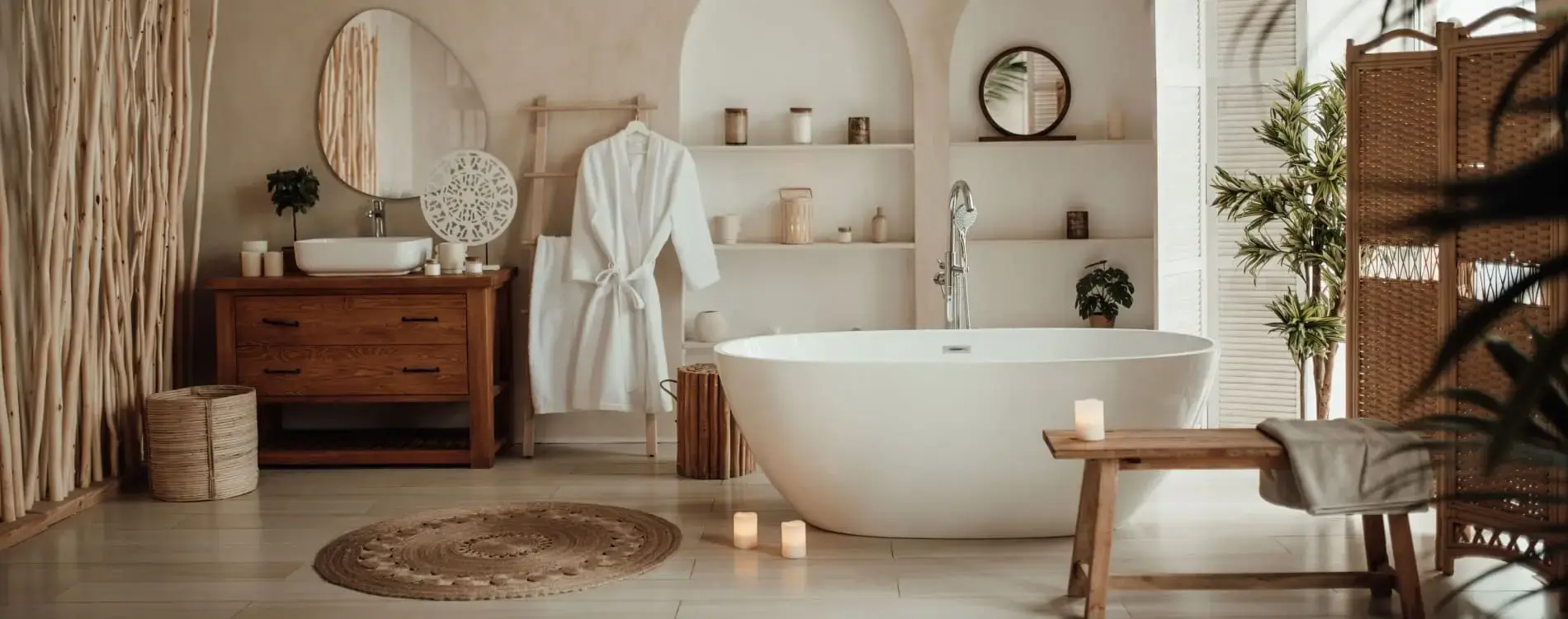The Role of MEP Engineering in Modern Bathroom Renovations

Bathroom renovations can significantly enhance the comfort and functionality of a home. While the focus is often on aesthetics and layout, the underlying MEP (mechanical, electrical, and plumbing) engineering plays a crucial role in ensuring a successful renovation.
MEP engineering plays an outstanding role in bathroom renovation; however, without a reliable renovation contractor, it is impossible to get all the necessary work in the wet area done. Top contractors function in many states, and among the top options, Mad City now serving Albany NY, ensures that every aspect of bathroom renovation is meticulously planned and executed to achieve the best results.
What Is MEP Engineering?
MEP engineering encompasses three primary disciplines: mechanical, electrical, and plumbing. These components are vital for creating a functional and safe bathroom environment. Together, these disciplines form the backbone of any bathroom renovation project.
Mechanical Engineering: HVAC Systems and Climate Control
Mechanical engineering focuses on heating, ventilation, and air conditioning (HVAC) systems. In bathroom renovations, this involves ensuring optimal climate control and air quality. Proper ventilation is crucial to prevent moisture buildup, which can lead to mold and mildew growth.
MEP engineers design HVAC systems that provide effective ventilation and maintain comfortable temperatures, enhancing the overall comfort and hygiene of the bathroom. Additionally, modern HVAC solutions, such as radiant floor heating, offer consistent warmth and energy efficiency, making the bathroom environment more pleasant and sustainable.
Electrical Engineering: Power Supply and Safety
Electrical engineering deals with the power supply, lighting, and overall electrical safety within the bathroom. Bathrooms require careful electrical planning due to the presence of water and moisture. MEP engineers ensure that all electrical installations comply with safety standards, including the use of ground fault circuit interrupters (GFCIs) to prevent electrical shocks.
They also design efficient lighting systems, incorporating energy-saving LED fixtures and smart lighting solutions that enhance convenience and reduce energy consumption. Proper electrical engineering ensures that bathrooms are safe, well-lit, and functional.
Plumbing Engineering: Water Supply and Waste Management
Plumbing engineering involves the design and implementation of water supply, drainage, and waste management systems. Efficient plumbing is essential for the functionality of any bathroom. MEP engineers design advanced plumbing systems that minimize water wastage and ensure reliable water flow.
This includes the installation of low-flow toilets, faucets, and showerheads that conserve water without sacrificing performance. Properly designed plumbing systems also prevent leaks and ensure adequate ventilation, reducing the risk of mold growth and other moisture-related issues. MEP engineers play a critical role in creating efficient, reliable, and sustainable plumbing systems in bathroom renovations.
Common Challenges in Bathroom Renovations
Bathroom renovations can be complex projects that require careful planning and execution. Various challenges can arise during the process, each demanding specific expertise to resolve.
Space Constraints
Bathrooms are often the smallest rooms in a house, which can pose significant challenges when trying to incorporate modern amenities and fixtures. Space constraints require careful planning to ensure that all elements fit comfortably without making the room feel cramped. MEP engineers work closely with designers to optimize the layout, ensuring that HVAC ducts, plumbing, and electrical systems are integrated seamlessly into the available space.
Load-Bearing Walls
In older homes, bathroom renovations may involve modifying or removing load-bearing walls, which can complicate the project. Structural engineers must assess the feasibility of such changes and design appropriate support systems to maintain the integrity of the building. This might involve installing beams or columns to redistribute the load effectively.
Pipe Rerouting
Rerouting plumbing pipes is often necessary during bathroom renovations, especially when changing the layout or upgrading fixtures. This can be particularly challenging in older homes where existing plumbing systems may not comply with modern standards. MEP engineers must design new piping routes that are efficient and comply with current building codes while minimizing disruption to the existing structure.
Water Pressure Issues
Maintaining adequate water pressure can be a challenge, especially when adding new fixtures, such as multiple showerheads or a high-efficiency toilet. Structural engineers must ensure that the water supply system can handle the increased demand. This may involve upgrading the main water line or installing a pressure-boosting system.
Electrical Capacity
Older homes may have electrical systems that are not equipped to handle the demands of modern bathroom appliances and fixtures. Upgrading the electrical panel to increase capacity is often necessary. MEP engineers must assess the existing system and design upgrades that provide sufficient power for new installations while ensuring safety and compliance with electrical codes.
Safe Installation of Fixtures
Bathrooms are wet environments, making electrical safety a top priority. Ensuring the safe installation of electrical fixtures, such as lights, fans, and heated towel racks, requires careful planning. Structural engineers must design systems that protect against water intrusion, using GFCIs and ensuring that wiring is properly insulated and routed away from moisture sources.
Moisture Control
Proper ventilation is essential to control moisture levels in bathrooms and prevent mold and mildew growth. Designing an effective ventilation system can be challenging, especially in small or windowless bathrooms. MEP engineers must design systems that provide adequate airflow and humidity control, often incorporating exhaust fans with humidity sensors to automatically adjust ventilation rates.
Odor Management
In addition to controlling moisture, proper ventilation is necessary to manage odors. Effective odor management requires the integration of exhaust systems that efficiently remove air from the bathroom and replace it with fresh air. Structural engineers must ensure that these systems are quiet and energy-efficient, providing a comfortable and pleasant bathroom environment.
Sustainable Bathroom Renovations
Sustainability is a growing concern in modern renovations, and MEP engineering plays a crucial role in achieving eco-friendly solutions. MEP engineers can help homeowners select sustainable materials and systems that reduce the environmental impact of bathroom renovations.
This includes the use of recycled or low-impact materials for fixtures and finishes, as well as the installation of energy-efficient appliances and water-saving technologies. By incorporating sustainable practices, MEP engineers contribute to the creation of green, energy-efficient bathrooms.
Project Management and Coordination
Successful bathroom renovations require meticulous planning and coordination between various professionals, including MEP engineers, contractors, and designers. Mechanical, electrical, and plumbing engineers are crucial to this process because they guarantee the smooth integration of these systems into the final design.
They work closely with other team members to address potential challenges and ensure that the project is completed on time and within budget. Effective project management and coordination by MEP engineers help prevent delays and ensure a smooth renovation process.
Optimization of Bathroom Layouts
Both the practicality and comfort of using a restroom are greatly affected by its design. MEP engineers collaborate with designers to optimize bathroom layouts, taking into consideration the placement of plumbing fixtures, electrical outlets, and HVAC systems.
By strategically planning the layout, MEP engineers can maximize space utilization and ensure that all systems work efficiently together. This holistic approach results in a bathroom that is not only aesthetically pleasing but also highly functional and efficient.
Concluding Remarks
MEP engineering is a crucial component of contemporary bathroom renovations, significantly enhancing the project's success and sustainability. By focusing on energy efficiency, safety, comfort, and sustainability, structural engineers ensure that renovated bathrooms meet the highest standards of performance and functionality.
Whether it's upgrading plumbing systems, ensuring electrical safety, or optimizing HVAC solutions, the expertise of these professionals is essential for creating bathrooms that enhance the quality of life for homeowners.

Ravindra Ambegaonkar
Ravindra, the Marketing Manager at NY Engineers, holds an MBA from Staffordshire University and has helped us grow as a leading MEP engineering firm in the USA
Join 15,000+ Fellow Architects and Contractors
Get expert engineering tips straight to your inbox. Subscribe to the NY Engineers Blog below.


